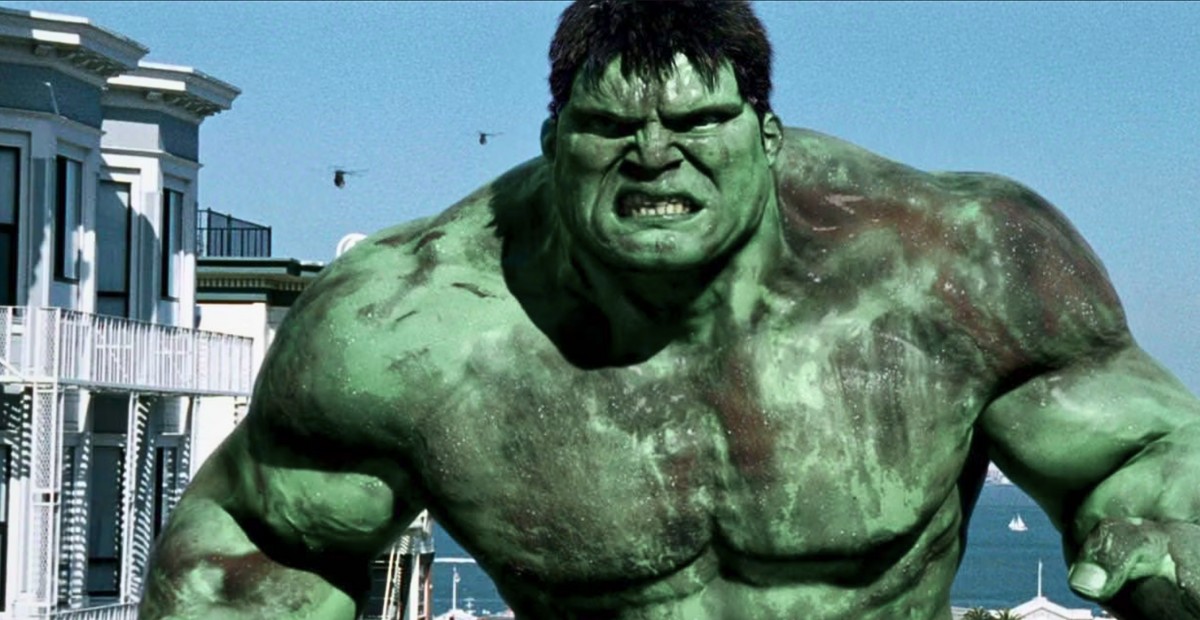I still remember watching Hulk (2003) for the first time as a kid.
I was fascinated by the raw power of Hulk smashing through tanks in the desert, but what stuck with me most was how human he felt.
It wasn’t just about destruction; it was about Bruce Banner’s struggle with himself.
Over the years, I’ve revisited different versions of Hulk, but Eric Bana’s portrayal remains the one I connect with the most—and I think it’s the best live-action take on the character.
Contents
A Deeper Origin Story
What I love about Hulk (2003) is how it dives into Bruce Banner’s backstory. This version ties Bruce’s anger and transformations to his childhood trauma, caused by his father, David Banner.
David’s reckless genetic experiments not only altered his own DNA but also passed those mutations to Bruce. From birth, Bruce was carrying a ticking time bomb inside him.
When Bruce’s transformation into Hulk happens, it isn’t just because of a random accident.
He absorbs gamma radiation while saving a colleague’s life—a heroic act that shows his selflessness even before he becomes a superhero.
For me, this twist made Bruce more relatable and tragic compared to other versions where his transformation comes from pure ambition or carelessness.
Rage with a Purpose
Bana’s Hulk isn’t just about smashing things for fun. His rage feels raw and emotional, almost like a child throwing a tantrum.
Every transformation comes from a place of deep pain, which makes his outbursts hit harder.
When Bruce finally lets loose, it’s not just a physical explosion but an emotional one, and you can feel the weight of his struggles in every scene.
One of my favorite details is how Hulk grows bigger as his anger increases. It’s such a simple yet powerful way to show how his strength is tied to his emotions.
The desert battle scene, where Hulk takes on tanks and helicopters, is a perfect example.
Watching him get larger and stronger as his rage builds makes it clear that he’s not just a force of destruction—he’s a reflection of Bruce’s inner turmoil.
The Heartbreaking Family Conflict
What makes this version of Hulk so compelling is the father-son dynamic between Bruce and David Banner.
David is the root of Bruce’s trauma, and their relationship is the emotional backbone of the film.
Nick Nolte plays David as both a tragic and villainous figure, a man whose obsession with genetic experiments ruins his family.
Their final confrontation is unforgettable. It’s not just a fight between Hulk and David, who becomes the Absorbing Man—it’s a clash of all the unresolved pain and anger between them.
That scene felt more personal than any other Hulk battle I’ve seen.
A More Human Hulk
Even though the CGI in Hulk (2003) might not hold up today, there’s something very human about Bana’s Hulk.
His movements are imperfect—he stumbles, readjusts his grip, and even shows moments of hesitation. It’s these small details that make him feel like more than a CGI creation.
I also loved how the film showed Hulk’s softer side. In one scene, Hulk meets Betty Ross, Bruce’s love interest, after a chaotic rampage.
Bruce Banner’s Humanity
Eric Bana’s performance as Bruce Banner is what ties everything together. He plays Bruce as quiet and reserved, a man who’s spent his life suppressing his emotions.
You can see the weight of his trauma in how he interacts with others, especially Betty.
Their relationship is one of the few things that gives Bruce hope, and Betty becomes a way for him to reconnect with his humanity.
When Betty calms Hulk down in the middle of his rampage, it’s a moment that stuck with me.
It shows that Bruce isn’t completely lost, even when Hulk takes over. These little glimpses of humanity make Bana’s Hulk feel more real and relatable than other versions.
Ang Lee’s Artistic Vision
Director Ang Lee approached Hulk like a Greek tragedy, focusing on themes of family, identity, and inner conflict.
It’s not your typical superhero movie—it’s slower, more emotional, and deeply personal.
Some people might not like the pacing, but I appreciated how much time the film spent exploring Bruce’s inner struggles.
For me, this artistic approach made Hulk (2003) stand out.
Instead of just being a story about smashing things (and even when talking about smashing, he’s still the best), it became a story about a man trying to reconcile with his past and find peace with himself.
